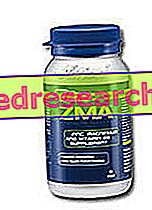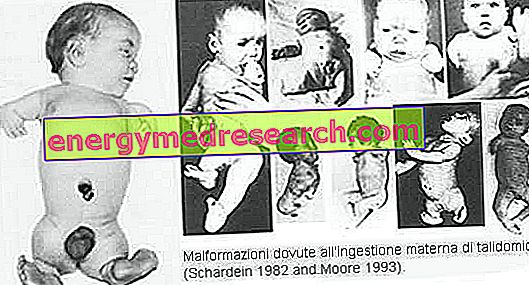
About ZMA - ProAction
ZMA - PROACTION
Food supplement based on zinc, magnesium and vitamin B6
FORMAT
Pack of 90 capsules
COMPOSITION
Zinc monomethionine
Zinc / Magnesium aspartate
Vitamin B6 - Pyridoxine HCl
Excipient: Magnesium stearate and silicon dioxide
Dyes: E171, E172, E555
Capsule: Hard gelatin
Per capsule: Zinc 4.96 mg - Magnesium 74.24 mg - Vitamin B6 1.72 mg
Product features ZMA - ProAction
ZMA - is a patented product, designed to optimize the absorption of zinc and magnesium. In fact, it uses the most bioavailable form of zinc, which is that associated with methionine covalently linked with zinc, and of magnesium (magnesium aspartate). The main objective of this product is to improve the body's anabolic processes, assisting the body in muscle growth.
Zinc: trace element present in traces in our body, but still essential for survival. In fact, severe deficiency of this mineral results in delayed sexual maturation, skin rashes, chronic and profuse diarrhea, fatigue, loss of appetite, immune system deficiency and general malaise. Fortunately, the symptomatology quickly regresses following the timely integration. However, zinc deficiencies are very rare, present above all in particular categories at risk, considering that a healthy diet is able to supply all the zinc necessary to satisfy the daily needs (7 / 10mg) and beyond, so much to be partially eliminated through the urine. The most bioavailable form is certainly that linked to methionine, which is found in common products of animal origin, on the contrary instead of that complexed with phytic acid which is found in products of vegetable origin. Although zinc is in many reactions, it is possible to describe three key roles for this element:
- CATALYTIC ROLE: many enzymes are in fact zinc-dependent;
- STRUCTURAL ROLE: it is included in proteins with antioxidant function and in membrane proteins, so that its deficits increase the susceptibility of cells to oxidative damage;
- REGULATORY ROLE: modulates gene expression, intracellular singalling, hormonal function and cell survival
Zinc and Sport: numerous scientific evidences show a direct involvement of zinc in physical activity, with a reduction of its levels following training; this deficit is also accompanied by a significant decrease in the ergogenic capacity of the muscle and a reduction in the body's anabolic properties. Furthermore, supplementation at 3 mg / kg / day has been shown to save testosterone and thyroid hormone fall after intense training.
Magnesium: trace element involved in more than 300 enzymatic reactions in the human body. Its requirement, estimated at around 350 / 400mg per day, can be met through simple feeding, provided it is balanced and varied. In the human body it is concentrated for 60% at the bone level, about 27% at the muscular level and for the remaining part inside the cells. Its deficiencies, although very rare, can be realized in risk categories, characterized by gastrointestinal and renal disorders, alcoholism, and in the most advanced age groups. Magnesium deficiency symptoms are characterized by muscle tremors, asthenia, loss of appetite, gastrointestinal disorders, hypocalcemin, bone rarefaction and widespread malaise. Its importance in maintaining functional organic homeostasis is due to:
- Energy role: it is a cofactor of numerous enzymes involved in glucose metabolism and in ATP synthesis;
- Anabolic role: participates in the synthesis of the most important macromolecules of our organism;
- Structural role: it is part of the formation of cell membranes and bone tissue;
- Modulator role: participates in the intracellular singalling and the regulation of the cell's vitality;
- Conveyor role: facilitates entry into the cell of other ions such as calcium and potassium, thus regulating nerve, muscle and cardiac function.
Magnesium and Sport: like zinc, physical activity has been shown to increase the renal excretion of this trace element, increasing its requirement by 10/20%, and how its deficiencies may be related to loss of contractile efficacy, oxidative damage and immunodepression. Furthermore, integration in sports has proven to be effective in optimizing glucose metabolism, reducing lactate formation, improving aerobic capacity, increasing hemoglobin levels, and assisting the anabolic phase by increasing testosterone levels.
Vitamin B6: pyridine derivative introduced mainly through foods of animal origin. This vitamin is absorbed at the level of the fast, after dependent ATP hydrolysis and reaches the liver bound to albumin. Here it is transformed into pyridoxamine and then into pyridoxal, and then phosphorylated with consequent activation and storage. From the liver it will then be released in a non-phosphorylated circle, to reach various tissues where, once rephosphorylated, it will be able to perform its biological role. Vitamin B6;
- Increases blood glucose levels: it favors glycogenolysis and gluconeogenesis;
- Promotes the synthesis of neurotransmitters such as serotonin, dopamine, norepinephrine and GABA.
- Leads the synthesis of the EME group, necessary for hemoglobin to bind oxygen;
- It allows the synthesis of Niacin, starting from tryptophan;
- Modulates hormonal action;
Its daily requirement is around 1 / 1.5 mg, but even in this case deficiency episodes are very rare.
Rationale for use - ZMA - ProAction
Although studies on the efficacy of supplementation with trace elements in sports appear to be somewhat encouraging, the role of the ZMA is strongly discussed. Only a study by Prof. Brilla, unpublished, showed how supplementation with 30 mg of zinc monomethionine / aspartate, 450 mg of magnesium / aspartate and 10.5 mg of vitamin B6, for 8 weeks before bedtime, has increased levels of total and free testosterone of over 30%, of IGF-1 (an important messenger with anabolic function) of 3.6%, as well as an improvement in athletic performance. However, subsequent scientific studies have denied these hypotheses, reproducing the same experiment on a greater number of athletes.
Interesting is a study that shows how zinc can interfere with magnesium absorption processes, unbalancing the magnesium ratio introduced / excreted magnesium; this probably sets the bases for understanding the reason why the ZMA does not seem able to replicate the results obtained for the single elements, failing even in the first of its objectives: to optimize the absorption of the two minerals.
Recommended use by the company - ZMA - ProAction
Take one ZMA capsule (400mg) in the evening on an empty stomach before bed.
Use in sports - ZMA - ProAction
If you wanted to replicate the dosage used in the only study in which you have obtained beneficial results, given the low dosage of the capsules of this supplement, you should take as many as 6, running the risk of side effects presumably concentrated in the gastrointestinal tract, and without the certainty of any benefit.
With regard to individual elements, however, it seems that in sports the most effective dosage is 10mg / kg / day for magnesium and 3mg / kg / day for zinc. At these doses, however, some side effects are documented, mainly concentrated at the gastro-intestinal level with diarrhea.
ZMA side effects - ProAction
Zinc: high amounts of zinc introduced are responsible for abdominal pain, diarrhea, nausea and vomiting. Chronic zinc administration (60 mg / day total) is associated with copper deficiency.
Magnesium: high amounts of magnesium are responsible for profuse diarrhea. The increase in serum magnesium levels is instead associated with hypotension, confusion, heart rhythm disorders, deterioration of renal function, fatigue, difficulty in breathing, and even cardiac arrest. The dose of safe supplementation appears to be 350 mg / day.
Vitamin B6: chronic administration can be responsible for damage to the nervous system and neuropathies of various levels already at doses higher than 200mg / day.
ZMA interactions - ProAction
Zinc: in addition to interfering with other trace elements such as copper, it could reduce the absorption of some antibiotics such as tetracyclines, reducing their effectiveness.
Magnesium: may interfere with some antibiotics, tranquilizers and oral anticoagulants, reducing their effectiveness.
Precautions for using ZMA - ProAction
The product is contraindicated in cases of renal or hepatic disease, cardiovascular disease and / or hypertension, during pregnancy, during lactation and under 14 years.
This article, elaborated on the critical re-reading of scientific articles, university texts and common practice, is for informational purposes only and is therefore not a medical prescription. It is therefore always necessary to consult your doctor, nutritionist or pharmacist before starting to use any kind of supplement . Further information on the critical analysis of ZMA - ProAction.
| BIBLIOGRAPHY |
Serum testosterone and urinary excretion of steroid hormone metabolites after administration of a high-dose zinc supplement. Koehler K, Parr MK, Geyer H, Mester J, Schänzer W. Eur J Clin Nutr. 2009 Jan; 63 (1): 65-70. Epub 2007 Sep 19. Effects of Zinc Magnesium Aspartate (ZMA) Supplementation on Training Adaptations and Markers of Anabolism and Catabolism. Wilborn CD, Kerksick CM, Campbell BI, Taylor LW, Marcello BM, Rasmussen CJ, Greenwood MC, Almada A, Kreider RB. J Int Soc Sports Nutr. 2004 Dec 31; 1 (2): 12-20 Effect of fatiguing bicycle on thyroid hormone and testosterone levels in sedentary males supplemented with oral zinc. Kilic M. Neuro Endocrinol Lett. 2007 Oct; 28 (5): 681-5. The effect of exhaustion on thyroid hormones and testosterone levels of elite athletes receiving oral zinc. Kilic M, Baltaci AK, Gunay M, Gökbel H, Okudan N, Cicioglu I. Neuro Endocrinol Lett. 2006 Feb-Apr; 27 (1-2): 247-52. Zinc supplementation in rats subjected to acute swimming exercise: Its effect on testosterone levels and relation with lactate. Kaya O, Gokdemir K, Kilic M, Baltaci AK. Neuro Endocrinol Lett. 2006 Feb-Apr; 27 (1-2): 267-70. Neuroendocrine responses to running in women after zinc and vitamin E supplementation. Singh A, Papanicolaou DA, Lawrence LL, Howell EA, Chrousos GP, Deuster PA. Vitamin and mineral status of trained athletes including the effects of supplementation. Weight LM, Noakes TD, Labadarios D, Graves J, Jacobs P, Berman PA. Am J Clin Nutr. 1988 Feb; 47 (2): 186-91. Effects of Magnesium Supplementation on Testosterone Levels of Athletes and Sedentary Subjects at Rest and after Exhaustion. Cinar V, Polat Y, Baltaci AK, Mogulkoc R. Biol Trace Elem Res. 2010 Mar 30. [Epub ahead of print] .The effects of magnesium supplementation on thyroid hormones of sedentars and Tae-Kwon-Do sportsperson at resting and exhaustion. Cinar V. Neuro Endocrinol Lett. 2007 Oct; 28 (5): 708-12. Update on the relationship between magnesium and exercise. Nielsen FH, Lukaski HC. Magnes Res. 2006 Sep; 19 (3): 180-9. Review. Magnesium sulfate enhances exercise performance and manipulates dynamic changes in peripheral glucose utilization. Cheng SM, Yang LL, Chen SH, Hsu MH, Chen IJ, Cheng FC. Eur J Appl Physiol. 2010 Jan; 108 (2): 363-9. Epub 2009 Oct 9. Magnesium sulfate enhances exercise performance and manipulates dynamic changes in peripheral glucose utilization. Cheng SM, Yang LL, Chen SH, Hsu MH, Chen IJ, Cheng FC. Eur J Appl Physiol. 2010 Jan; 108 (2): 363-9. Epub 2009 Oct 9. The effect of magnesium supplementation on the levels of sportsmen and sedanter. Cinar V, Nizamlioğlu M, Moğulkoc R. Acta Physiol Hung. 2006 Jun; 93 (2-3): 137-44. |



